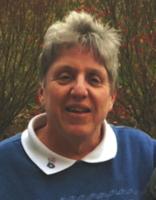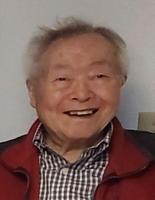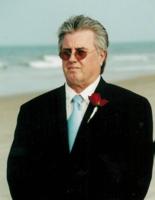FAIRMONT — After Congress failed to pass the For the People Act earlier this year, several West Virginia figures came together to back a piece of compromised legislation, including U.S. Sen. Joe Manchin.
After Manchin opposed the For the People Act — a bill seeking to establish national standards for voting access — several West Virginia voting rights advocates joined together to work with Manchin to find a compromise.
The product is the Freedom to Vote Act, which was introduced Sept. 14 by Sen. Amy Klobuchar with Manchin as one of the lead sponsors.
Wednesday, Natalie Tennant, former W.Va. Secretary of State, and several other voting rights advocates joined the Times West Virginian’s editorial board to discuss the new bill being championed by Manchin.
Becky Ceperley, of Charleston, former president of the National League of Women Voters, was firm in saying that a bill like this is crucial.
“It’s imperative that we pass some comprehensive voting rights legislation and this Freedom to Vote Act is a prime example,” Ceperley said. “It touches many of the areas that are necessary to make the people confident that they can vote.”
The bill guarantees early and mail-in voting, voter validation, modernizing voting, and cracking down on voter suppression. Within the bill are provisions which would make Election Day a national holiday and would also provide 15 days of guaranteed early voting in each election in every state.
The bill also goes beyond voting and targets partisan redistricting, campaign finance reform, election security and prevention of election subversion.
“We should be centered on the voter, we should be pro-voter,” Tennant said. “Once we’re pro-voter, we can find ways to make the process work.”
A large part of the bill is the removal of what Tennant calls, “dark money” from politics. Dark money is when large donations to political campaigns are from organizations who do not have to disclose the source of their funds.
Under the new bill, any entity that spends more than $10,000 in an election must disclose all of its major donors.
“Dark money has become a primary funding source for these campaigns,” said Rick Staton, former majority leader of the W.Va. House of Delegates. “So you have people who are discouraged from running because they don’t have funds or access to funds. Right now we have people in Congress literally funded by special interest groups.”
Some of the major complaints raised against the bill are that it’s federal government overreach and that the “system is fine as it is.”
Many in opposition to a federal voting rights bill believe that such a piece of legislation would cripple the rights laid out in the Constitution that give states control over elections. However, proponents of the Freedom to Vote Act bill say that’s not the case.
Tom Sussman, a Charleston-based political consultant, said that many of the talking points used against this bill are the same that were used against its predecessor. To him, the detractors are no more right now than they were then.
“We’ve done this type of legislation before. There was the Voting Rights Act in 1965 and others over the years,” Sussman said. “[Legislators] shouldn’t be concerned with county elections... but [legislators] should be concerned about the process to elect the President of the United States and Congress.”
Manchin was against the original For the People Act because he considered it “overly politicized.” Manchin wrote a column in the Charleston Gazette-Mail defending his position against the original bill. Now, he is one of the sponsors of its successor.
However, U.S. Sen. Shelley Moore Capito, R-W.Va., stood in opposition of the previous bill and still opposes the new bill despite the changes.
“I want every eligible West Virginian to be able to exercise their right to vote, find the process easy and accessible, and ensure their vote is counted, however, the ‘Freedom to Vote Act’ remains a partisan power grab that includes unrelated, harmful provisions on the liberal wish list previously included in the ‘For the People’ Act,” she said in a statement.
“I continue to oppose this flawed bill because it still fundamentally federalizes our elections. Despite the changes proposed, this bill would still strip states of their authority to run their elections as needed by their unique constituencies. Bottom line, West Virginia doesn’t need Washington, D.C. to impose burdensome requirements to fix problems that do not exist.”
While speaking in Fairmont on Aug. 11, Manchin said the guard rails that the Voting Rights Act of 1965 created, need to be restored. Under the 1965 law, which has since been struck down by the U.S. Supreme Court, states — particularly those in the U.S. South with a history of Jim Crow voting prohibition laws — must obtain U.S. Justice Department pre-clearance before making any changes to their voting laws.



















Commented
Sorry, there are no recent results for popular commented articles.